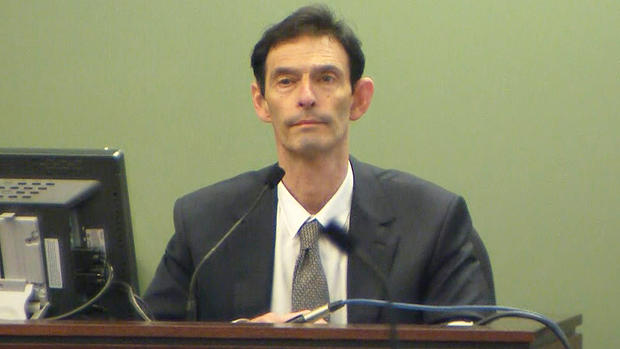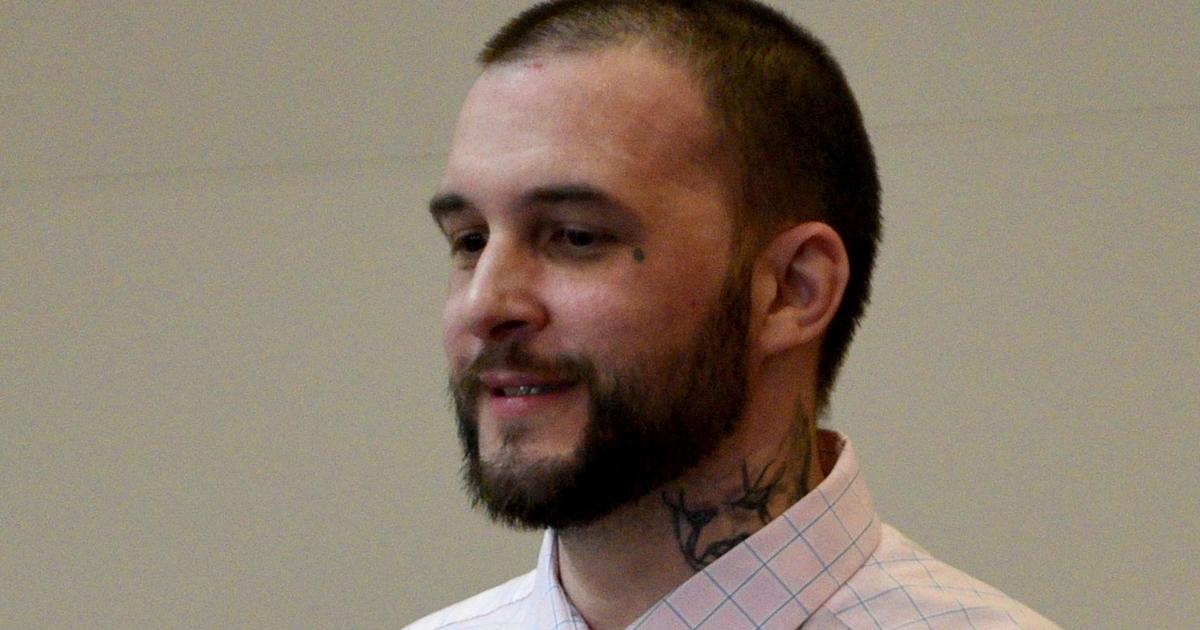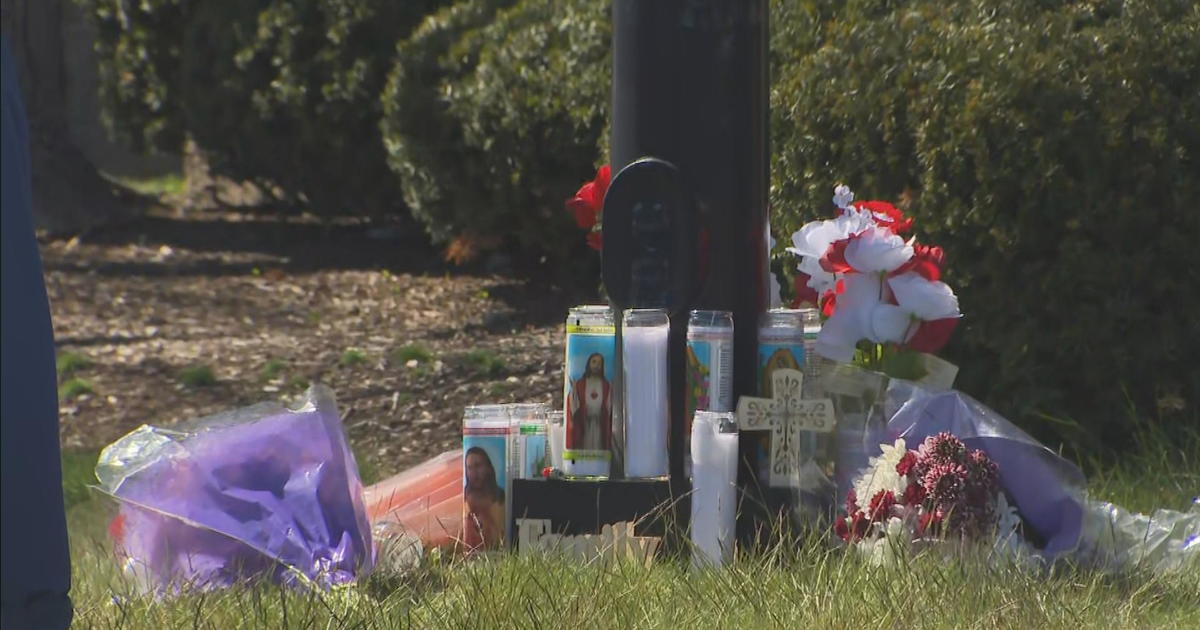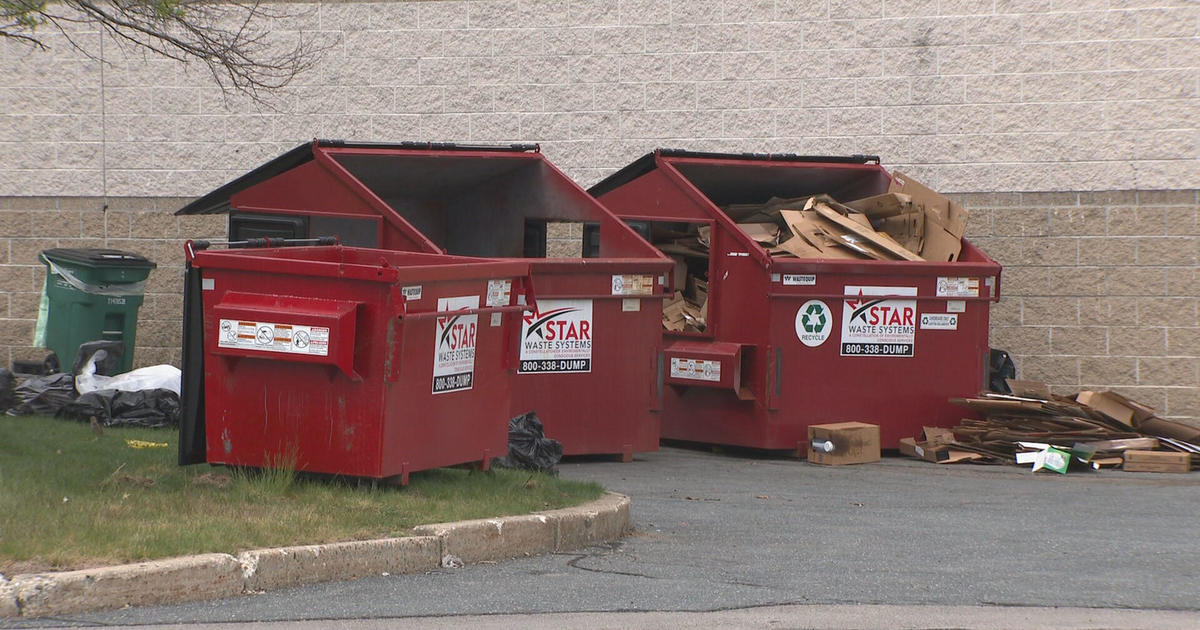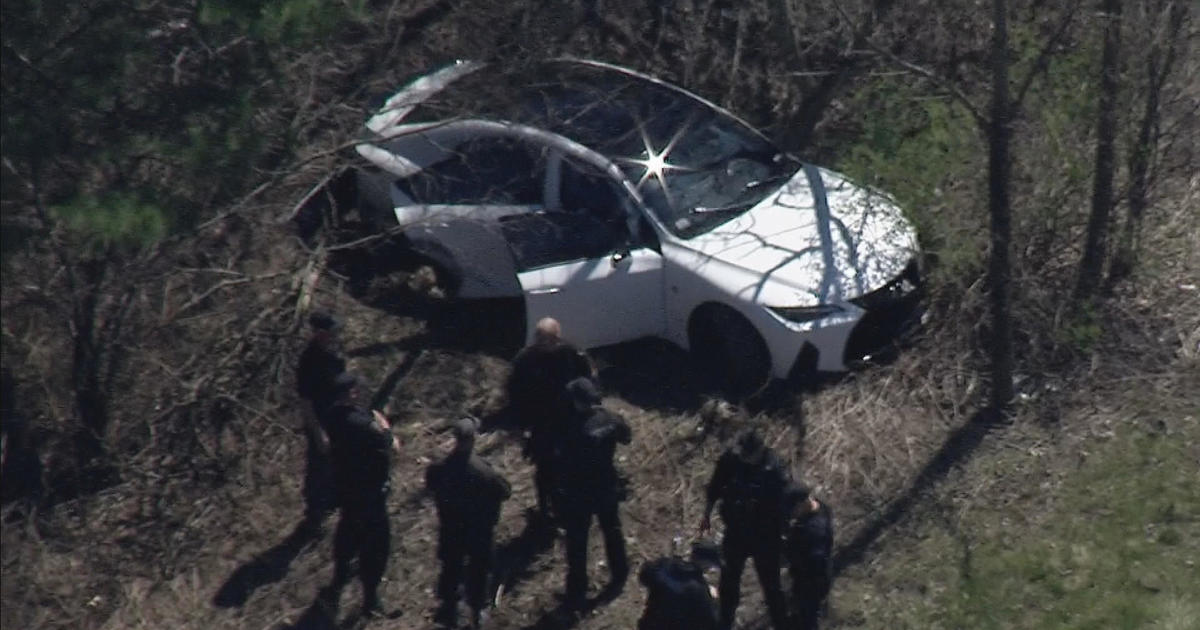Brad Casler, Driver In Deadly Sweet Tomatoes Crash, Testifies: 'I Just Don't Remember'
WOBURN (CBS) -- Brad Casler, the driver involved in the deadly Sweet Tomatoes crash, chose to testify in his own defense Tuesday in Middlesex Superior Court. Casler, 57, faces two motor vehicle homicide charges for the deaths of 32-year-old Gregory Morin and 57-year-old Eleanor Miele.
In March of 2016, Casler's S.U.V went through a Newton intersection and drove into the Sweet Tomatoes pizza shop, killing two people and injuring seven others.
Before Tuesday, Casler had never publicly commented on the case; his attorney has blamed Casler's multiple sclerosis for the crash and said he should not be held criminally responsible.
As a part of his defense, Casler's attorney asked him about his multiple sclerosis, how it impacts his daily life, and what it does to his body.
"It just haunts it, that's what it does. You never know," Casler responded. "It's sometimes termed as the snowflake disease because every case is different. The one predictable thing about multiple sclerosis is that it's unpredictable."
He was diagnosed in 1996.
Casler testified that he was driving to Trader Joe's and on the phone with a friend through Bluetooth on the night of the crash. "As I'm driving I felt weird, my body felt strange to me, which has never happened before and I didn't know what was going on and I said to him, 'I have to get off the phone'... The car was speeding up and I just didn't know what was happening and I just couldn't control it at that time," he said.
Casler was then asked what happened next.
"I don't know, I don't know, It haunts me every day that I don't know what happened. I just don't remember. I think about it all day long, I think about it at night, I wake up and shake at night lately."
The next thing Casler remembers, he said, was being in the hospital.
Casler testified that he was unable to remember other key details, like if his hands were on the wheel, if he moved into the left lane on Chestnut Street to avoid traffic, if he tried to get out of the car immediately following the crash, if he informed EMTs of his multiple sclerosis, or if he told EMTs he did not have an episode that caused the crash.
"I hit my head, I had a concussion which was reported. I don't remember what happened. I have no idea what happened," he said.
According to Casler, his multiple sclerosis has gotten worse in recent years, partially due to stress. He sited "this unfortunate situation," likely the crash and continuing legal battle, along with caring for his mother who was sick with cancer and dementia over the last few years. Casler teared up when he said she died last week.
Police revoked Casler's license following the crash. Casler testified that he no longer has any desire to drive anyway, although he still has a handicap placard which he had used occasionally when fatigued.
His driving history was a heavy topic throughout the questioning. Casler had previously worked in commercial real estate for about 30 years and sometimes his job required him to drive 7 days a week, he testified. At times, his multiple sclerosis prevented him from leaving his house and going to work appointments.
He also said he has never heard people with multiple sclerosis being advised to keep driving trips short when fatigue is an issue, not to drive in heavy traffic, or not drive in bad weather. Casler testified in years past he had researched how to be a safe driver as someone with multiple sclerosis.
At points, he recalls specifically not getting into the car because of multiple sclerosis, but did not give any specific dates.
As Casler testified further about how fast multiple sclerosis symptoms arise, he said, "my pain comes and goes. Blink of an eye. Could have pain at two o'clock and could not have pain at five o'clock."
When he was questioned if symptoms could come on to him "in the blink of an eye" while driving, Casler responded, "it usually manifests itself. It rises up so it's already starting before and then it hits a plateau and then that's the case."
"If you know it, you stop. Stop doing anything, walking, driving. I've pulled myself off the road before. I've been to the gym before, walking and doing exercises, and leave the gym in a wheelchair, so it happens out of the blue."
After being asked if it would be a problem behind the wheel, Casler said, "potentially, yes," but defended his decision to drive. "I control myself and know when to stop and pull over."
Casler's girlfriend appeared as a witness earlier Tuesday. Elena Du Plessis told the court that Casler called her the night of the crash from Newton-Wellesley Hospital. When she arrived at the hospital and was able to see him, "he was going on like 'it was terrible' and 'I don't know why I'm okay,'" Du Plessis recalled.
The Commonwealth then rested their case.
While Casler used a walker to reach the stand, his girlfriend testified that he never needed to use a walker or a cane before the crash.
